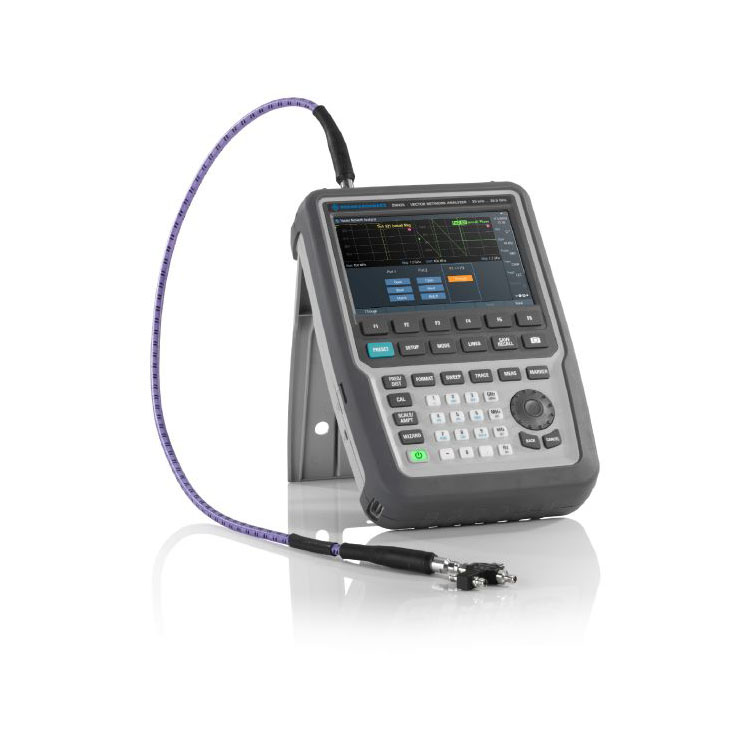How Are Network Analyzers Revolutionizing Modern Communication Systems?
2024-12-18
In today's fast-paced, data-driven world, reliable and efficient communication networks are more critical than ever. Whether it's a mobile network, Wi-Fi infrastructure, or satellite communication, the backbone of these systems depends on precise monitoring and testing. This is where network analyzers come in. But how exactly are network analyzers revolutionizing modern communication systems? Let's dive into how these powerful tools are transforming the way we design, maintain, and optimize communication networks.
What is a Network Analyzer?
A network analyzer is a specialized tool used to monitor, analyze, and troubleshoot the performance of communication networks. It measures various parameters, such as signal strength, bandwidth, latency, and the quality of the network’s components, to ensure the system operates smoothly and efficiently. In essence, network analyzers provide in-depth insights into how data is transferred across different layers of the network, helping engineers diagnose issues and optimize performance.
Network analyzers come in two primary forms: hardware-based and software-based. Hardware network analyzers are physical devices that connect to a network to perform tests, while software-based analyzers (also called packet analyzers or sniffers) run on general-purpose computers and capture data packets transmitted across the network.
How Do Network Analyzers Enhance Network Performance?
1. Precise Diagnostics and Troubleshooting
One of the most critical functions of a network analyzer is its ability to pinpoint issues within the network. These tools provide engineers with real-time data, making it easier to identify problems like network congestion, dropped packets, or weak signal strength. For example, when a network is running slow, engineers can use network analyzers to track down the root cause, whether it’s a hardware failure, configuration issue, or external interference. Without the detailed insights offered by these tools, troubleshooting could take much longer and result in more downtime.
In the case of wireless networks, Wi-Fi network analyzers can help pinpoint dead zones or areas with weak signal strength, improving both the performance and user experience of wireless communication.
2. Bandwidth Management
Effective bandwidth management is essential for ensuring that a network can handle varying levels of traffic without overloading or slowing down. Network analyzers provide engineers with a clear picture of how bandwidth is being utilized across different network segments. By understanding bandwidth consumption patterns, engineers can allocate resources more efficiently, prioritize critical data, and prevent bottlenecks. In large-scale networks with many users or devices, this function is vital for maintaining optimal performance.
Moreover, by identifying network traffic patterns and usage spikes, network analyzers enable administrators to plan for future growth and ensure that their systems can scale efficiently.
3. Optimizing Network Infrastructure
Network infrastructure is a significant investment, and optimizing it can lead to cost savings and better overall performance. Network analyzers allow engineers to evaluate the performance of various network components (routers, switches, cables, etc.) and determine if any of them are underperforming or need upgrading. This helps ensure that the network runs efficiently and is capable of handling future demands.
In addition, network analyzers can assess quality of service (QoS), ensuring that critical applications like VoIP (Voice over IP) or video conferencing receive the bandwidth and priority they require for smooth operation.
4. Testing and Validating Network Designs
For engineers and designers, network analyzers are indispensable tools during the design phase of a network. Before deployment, a network analyzer can simulate how the network will perform under various conditions, allowing for thorough testing and validation. By ensuring that the design works as intended, network analyzers reduce the risk of performance issues once the system goes live.
Additionally, for evolving systems like 5G or IoT networks, where new technologies and protocols are often involved, network analyzers help ensure that the new infrastructure meets the required standards and works efficiently with existing systems.
How Are Network Analyzers Being Used in Different Industries?
1. Telecommunications
In the telecommunications industry, network analyzers are crucial for ensuring the quality of service for customers. Telecom companies use network analyzers to monitor cellular networks, validate coverage, test signal strength, and measure signal-to-noise ratio (SNR). These tools are especially important for ensuring that networks perform well under peak loads and that data transmission rates meet customer expectations.
As 5G networks become more widespread, network analyzers will play a critical role in ensuring that these advanced systems meet the high-speed, low-latency demands of users. With the complexity of 5G infrastructure, network analyzers help engineers validate the deployment of millimeter-wave frequencies, ensure efficient small cell deployment, and analyze network traffic patterns to prevent congestion.
2. Enterprise Networking
For large organizations that rely on enterprise networks to run applications, store data, and maintain business operations, having an efficient, secure, and scalable network is essential. Network analyzers are used to troubleshoot issues related to network security, data traffic management, and VPN performance. They also help to monitor network health and verify that internal communication channels are secure from external threats.
For enterprise IT teams, having the ability to continuously monitor and analyze network performance allows for proactive network management and immediate resolution of issues before they impact employees or customers.
3. Manufacturing and Automation
In industries that rely heavily on IoT (Internet of Things) devices, such as manufacturing, network analyzers are crucial for monitoring device-to-device communication and ensuring data flows smoothly across the network. With the rise of Industry 4.0—which emphasizes automation, connectivity, and data exchange—network analyzers allow manufacturers to track and troubleshoot the communication between sensors, robots, and other smart devices, ensuring optimal operation and preventing costly downtimes.
4. Data Centers and Cloud Services
In data centers and cloud computing environments, where huge volumes of data are transferred between servers, network analyzers ensure high network performance and uptime. Data center operators use network analyzers to monitor data traffic flows, identify performance bottlenecks, and detect potential security vulnerabilities. With the increasing shift toward cloud services, maintaining seamless communication across networks is essential to ensure the uninterrupted delivery of services.
How Do Network Analyzers Contribute to Security?
Network analyzers also play a significant role in network security. By monitoring network traffic, these tools can detect anomalies that may signal potential security threats, such as DDoS attacks, malware activity, or unauthorized access. With advanced packet capture and deep packet inspection capabilities, network analyzers can provide the insights needed to track malicious activity, perform forensic analysis, and take appropriate corrective actions.
Furthermore, intrusion detection systems (IDS) can be integrated with network analyzers to continuously scan for abnormal network behavior, helping network administrators quickly respond to security breaches.
Conclusion: How Are Network Analyzers Shaping the Future?
Network analyzers are essential tools that enable businesses and industries to create, manage, and troubleshoot high-performance communication systems. From ensuring network reliability to optimizing bandwidth and enhancing security, network analyzers are integral to the seamless operation of modern networks. As communication systems become more complex and data-intensive, the role of these tools will only continue to grow.
In the world of evolving network demands—whether driven by 5G, IoT, or cloud computing—network analyzers are helping to ensure that networks remain robust, efficient, and secure. So, if you're wondering how network analyzers are revolutionizing modern communication systems, the answer is clear: these tools are making networks smarter, faster, and more reliable than ever before.



